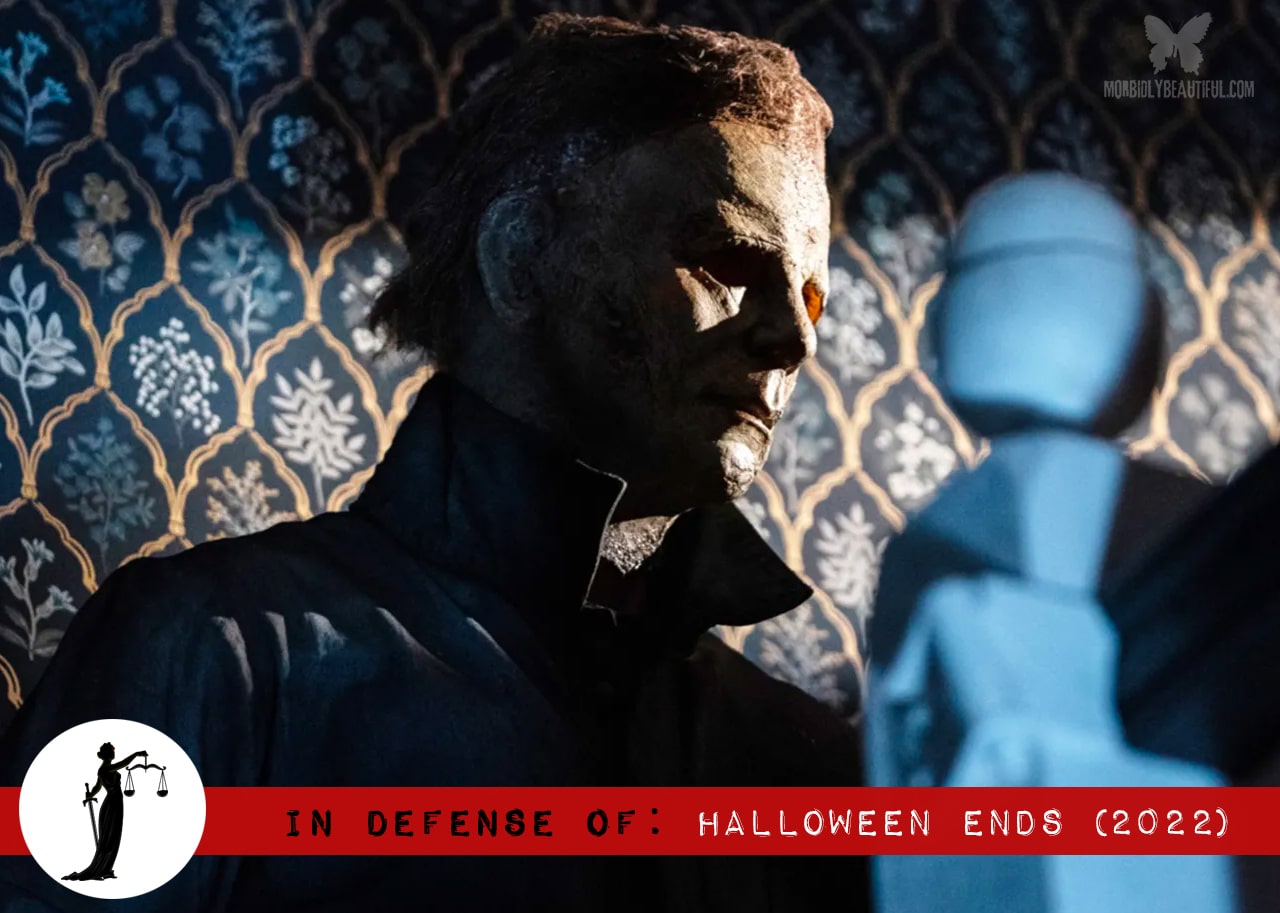In Defense Of: Halloween Ends



The recent release of The Exorcist: Believer, another Blumhouse reboot of a beloved horror property helmed by David Gordon Green, has horror fans talking — and fighting. But it’s certainly not the first time the studio has courted controversy and dared to reimagine a horror classic many deem untouchable.
In 2018, Blumhouse and Green released a new vision of Halloween, which essentially served as a 40th-anniversary celebration of the Halloween franchise.
In the film, Laurie Strode (played by returning franchise star Jamie Lee Curtis, reprising the role that made her famous and cemented her Scream Queen status) is struggling to move past that traumatic night in Haddonfield, 1978.
It seems her fears — deemed irrational by most, including her daughter Karen (Judy Greer) and her granddaughter Allyson (Andi Matichak) — are, in fact, well warranted as Michael escapes to terrorize Haddonfield and the one that got away once more.
Surprisingly, this fresh take on a genre giant had both fans and critics singing the praises of the filmmakers, including writer-director Green and co-writers Jeff Fradley and Danny McBride.
With a stellar 79% critics score on Rotten Tomatoes and equally positive audience response, the consensus was that the film did an outstanding job taking the franchise back to the basics and neatly discarding the mess from the series’ increasingly elaborate mythology and multiple messy timelines.
After an explosive finale, Halloween Kills showed a far angrier and vengeful Michael, creating a bloodbath of the innocent people in the town.
Despite the delivery of promised gore and mayhem, the fan-service-heavy Kills took a beating from critics, garnering a dismal 39% critics score on Rotten Tomatoes. Fans mostly stood by the franchise, though the enthusiasm dwindled considerably from 2018’s Halloween.
The highly anticipated series finale came with Halloween Ends, promising an epic showdown between Myers and Strode in the midst of one last bloody rampage on a healing town.
Green and cohorts took a big swing with the final chapter, introducing a new character and sidelining its main attraction for most of the film.
According to most critics and fans, it was a swing and a miss. Though it got the tiniest bit more love from critics than Kills, with a 40% on Rotten Tomatoes, audiences had much more negative feedback for this film than the other two.
And the current audience score of 57% on Rotten Tomatoes reflects just how deeply divisive this finale was among horror fans.
Upon closer inspection, however, the trilogy has a deeper meaning — a meaning that franchise creator John Carpenter has been trying to get across all along.
To explain, let’s look at the original movie. Hardcore horror fans know that Carpenter never intended for Halloween to become a franchise. If he had it his way, the 1978 movie would have been the last time audiences saw Michael Myers.
You may ask, “What about the cliffhanger?” The film had a memorable ending, showing that Michael survived his shooting as well as his fall. The film ends with his breathing, implying he is still on the loose.
Knowing what Carpenter’s original intentions were may conflict with this ending. The fact is, this wasn’t intended to be seen as a cliffhanger per se. Dr. Loomis has several chilling monologues claiming Michael is nothing but pure evil. The ending sequence was meant to imply that no matter how hard we fight or how fast we run, evil will never truly die.
With the multitude of sequels, it is easy to claim the Halloween franchise is about Michael Myers. The original film, however, isn’t.
Yes, Michael is the primary killer, but it isn’t his movie. Is it Laurie’s? Loomis’? Even Haddonfield’s?
The Blumhouse trilogy took the series back to its roots by making it about just that, evil.
In 2018’s Halloween, evil causes Laurie to self-destruct and push her family away. Kills sees a mostly innocent town give in to their primal urges and cause the death of an innocent man, all because of evil. Ends gives us an outcast who uses his own evil means to exact revenge on a town that turned its back on him.
Regardless of how one reads it, evil is always the focal point. Michael Myers is nothing more than a vessel.
A common debate in the fandom is whether or not Michael is supernatural. Kills showcased it best. Michael was nothing more than a vessel for evil. The town eventually created its own vessel in the form of an angry mob. The difference is the townsfolk realized their mistakes, and Michael gave in to his urges.
Halloween Ends will be the subject of division for quite some time. Hopefully, a majority of fans will, at the very least, understand what it was going for.
Halloween is one of the greatest franchises in all of horror — and love it or hate it, the Blumhouse trilogy truly gave it the respect it deserved.
Follow Us!